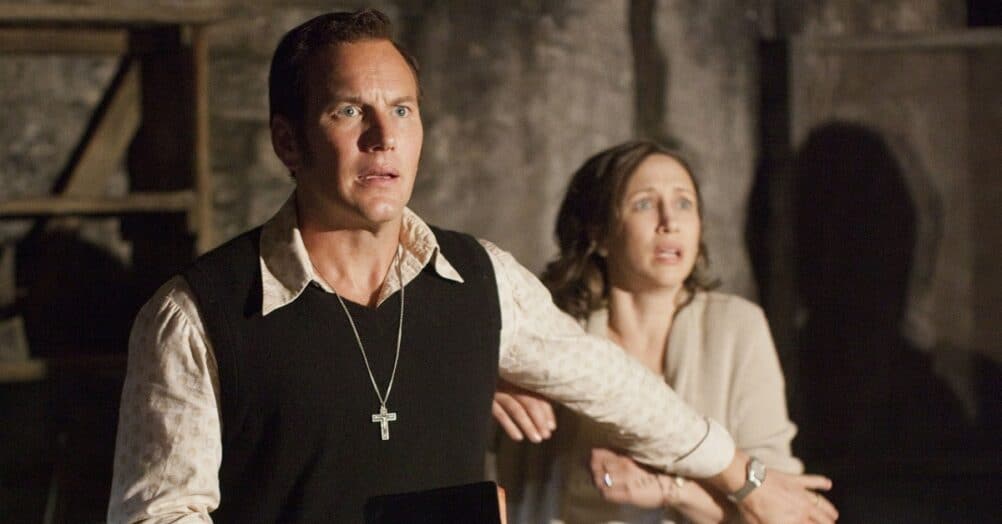Last Updated on August 5, 2021

Ben Affleck gained a lot of respect from me when he began directing. He definitely surprised me with how adept he is behind the camera. While I never thought he was an amazing actor, he certainly is not a bad one. So, when he made the statement that Terrence Malick’s TO THE WONDER “makes TREE OF LIFE look like TRANSFORMERS,” I knew we were in for a treat. I loved TREE OF LIFE and while I know it was not for everyone, you cannot deny it was a unique cinematic experience.
But, aside from the fact we know a laundry list of stars was recently cut from the movie, what is TO THE WONDER ABOUT? We now know. Via a press release for the film’s premiere, here is the full synopsis for the movie. Synopsis may be the wrong word because this is pretty much an essay. Check it out. Warning, obvious spoilers to follow.
TO THE WONDER, written and directed by Terrence Malick, is a romantic drama centered on Neil, a man who is torn between two loves: Marina, the European woman who came to United States to be with him, and Jane, the old flame he reconnects with from his hometown. In TO THE WONDER, Malick explores how love and its many phases and seasons – passion, sympathy, obligation, sorrow, indecision – can transform, destroy, and reinvent lives.
As TO THE WONDER opens, Neil and Marina are together on the French island of Mont St. Michel – known in France as The Wonder of the Western World (Merveille de l’Occident) – and invigorated by feelings of being newly in love. Neil, an aspiring writer, has left the United States in search of a better life, leaving behind a string of unhappy affairs. Looking into Marina’s eyes as the Abbey looms in the distance, Neil is certain he has finally found the one woman he can love with commitment. He makes a vow to be true to this woman alone.
Marina, quiet and beautiful, with flashes of a mischievous humor, is divorced and the mother of a 10-year-old daughter, Tatiana. At 16, Marina left the Ukraine for Paris without a cent to her name. There, she married a Frenchman who abandoned her after just two years, leaving her alone with Tatiana in a studio apartment. Marina was forced to work a variety of temporary jobs to make her way. Having nearly given up hope, Marina is overcome with joy to be in love with Neil, her salvation from an unhappy future.
Two years later, Neil and Marina are living in a small town in Oklahoma, close to where Neil grew up. Neil, having given up his hopes of becoming a writer, has taken a job as an environmental inspector. Neil is happy with his work, but his love for Marina cools as she, for her part, is frustrated by the holding pattern she feels she is in with Neil. She fears her youth – and happiness – are slipping away. In spite of her anxieties about Neil, Marina initially feels at home in Oklahoma, embraced by the open space and sky, and soothed by the sounds that come from the wind harp that animates breezes into songs.
Seeking advice, Marina turns to another exile in the community, a Catholic priest named Quintana. We learn that Father Quintana has come to grapple with his own dilemmas, as he harbors doubts about his vocation. He no longer feels the ardor he knew in the first days of his faith, and wonders if he ever will again.
Professional life throws Neil into conflict as well, when he discovers that a smelting operation in town is polluting the soil and water and threatening the health of future generations. His concerns fail to persuade his neighbors, who depend on the smelter for their livelihoods. Under pressure to keep quiet, Neil must once again weigh the consequences of his actions.
Neil’s doubts about Marina intensify. This, coupled with the fact that Marina’s visa is soon to expire, leads her to return to France with her daughter. In her absence, Neil reconnects with Jane, an old friend. As the two of them fall deeply in love, Neil finds this new relationship far less complicated. Yet when word comes to him that Marina has fallen on hard times and her daughter has gone to live with her father and refuses to have anything more to do with her, he finds himself gripped by a sense of responsibility for her wellbeing, and arranges for her return to the United States.
Neil’s entanglements with the two women in his life, and Father Quintana’s struggle with his faith, force them both to consider different kinds of love. Should the commitment they each made be undertaken as a duty, sometimes full of effort? Or should we accept that love often changes, and doesn’t always last? Can sorrow bind lovers more tightly than joy?
Wow, how can you not want to see that movie? This sounds epic and yet intimate at the same time. I cannot wait to see this movie. Plus, Affleck is also quoted as saying “The film feels to me like more a memory of a life than a literal story in real time of someone’s life, the way movies more commonly are. This pastiche of impressionistic moments, skipping across the character’s life and moving in a nonlinear way, mirror, in my mind, the way one remembers one’s life. It’s a little hypnotic and you’re a little bit in a daze — it’s more fluid than real life is.”
Yep, sign me up to see TO THE WONDER now.


















Follow the JOBLO MOVIE NETWORK
Follow us on YOUTUBE
Follow ARROW IN THE HEAD
Follow AITH on YOUTUBE